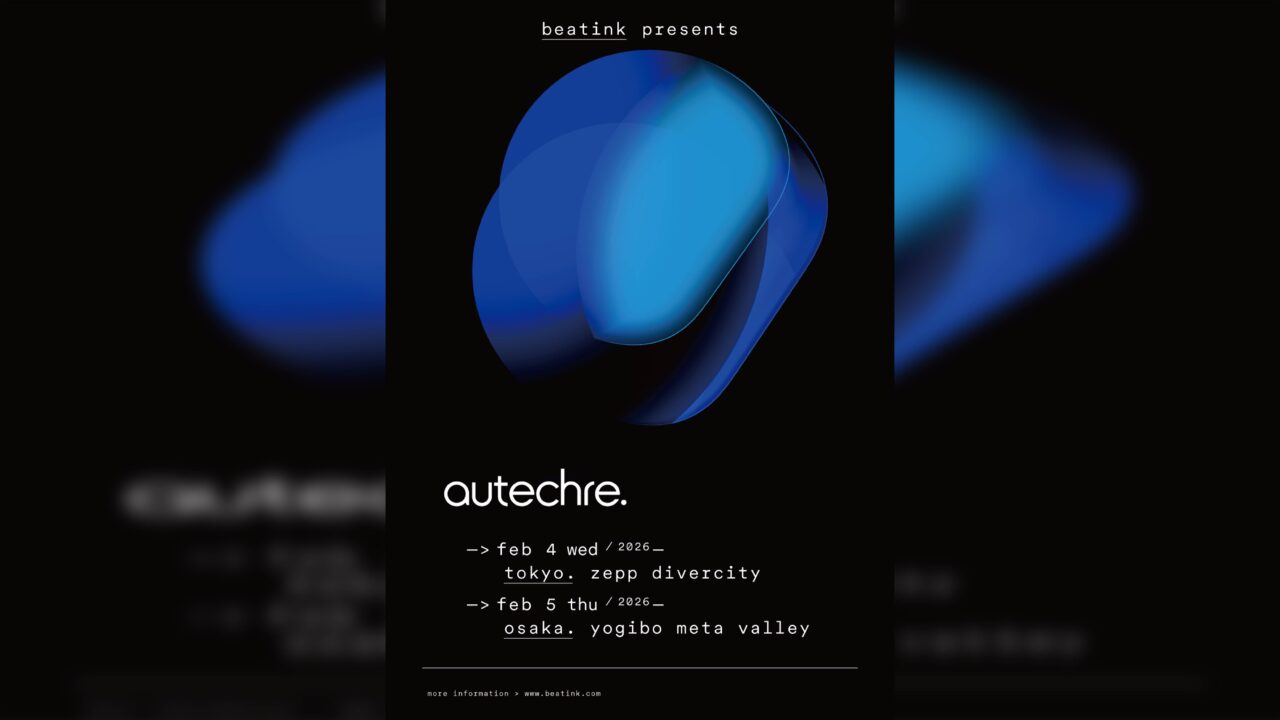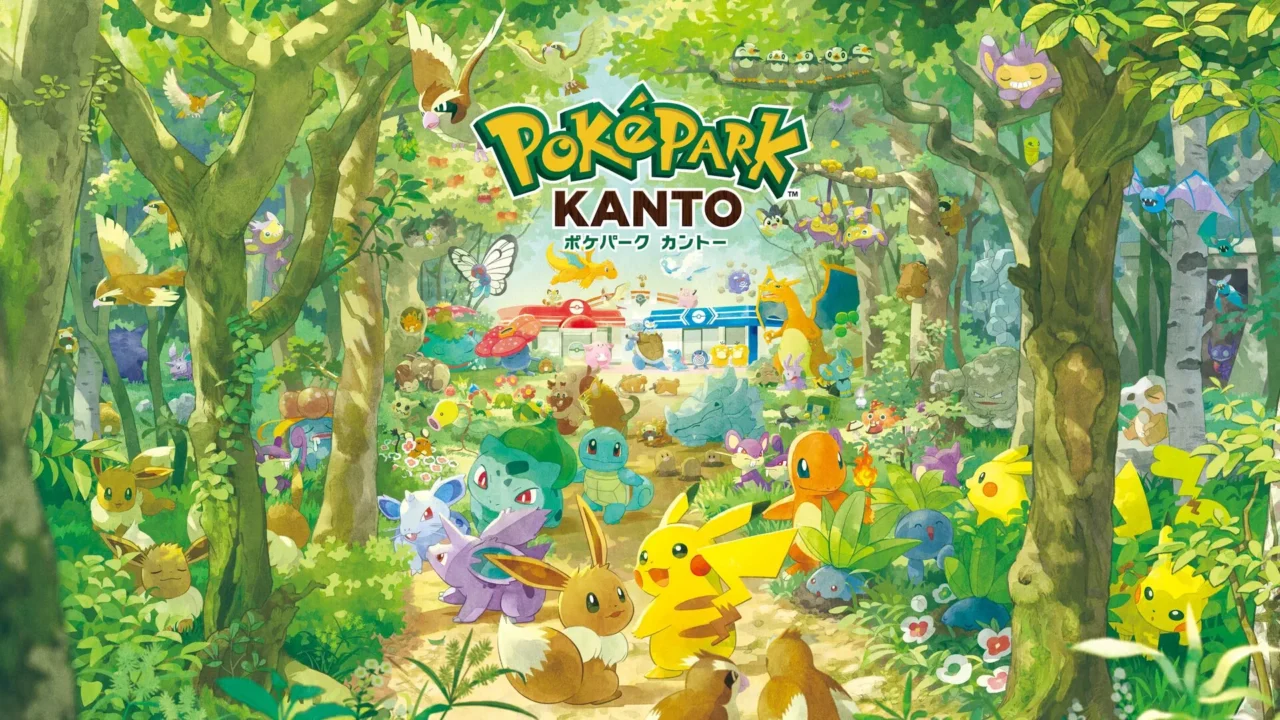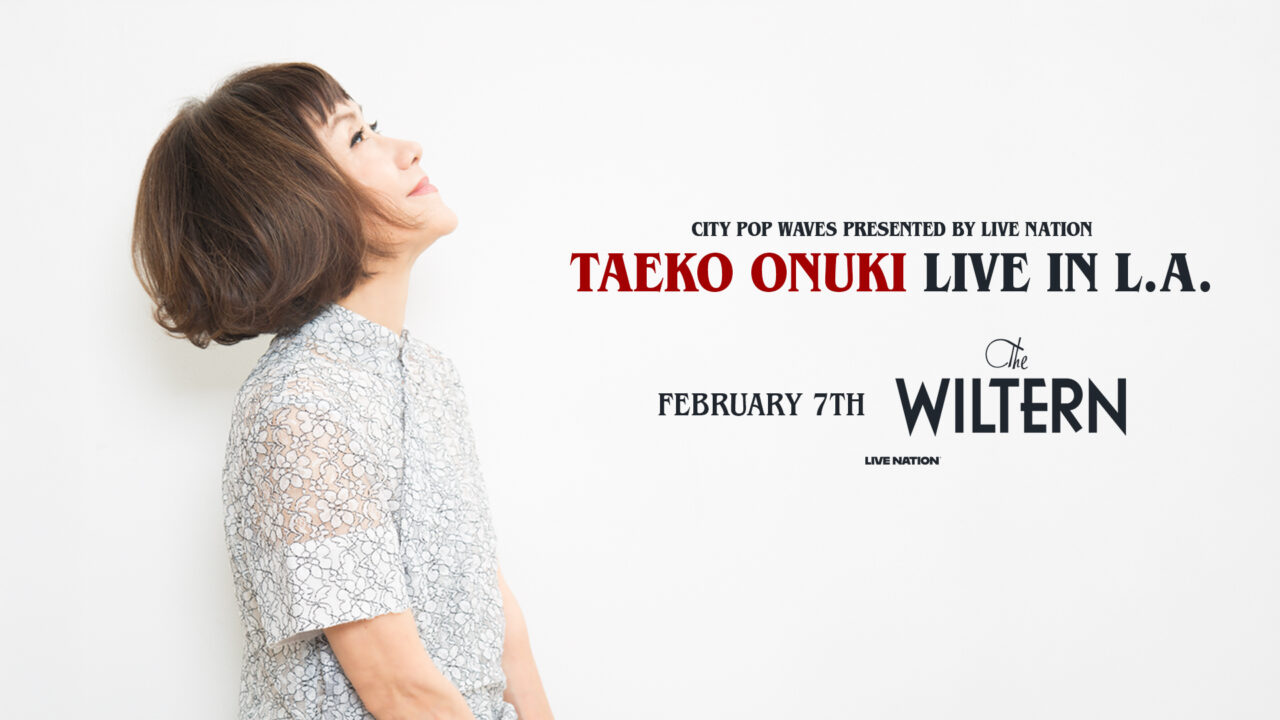Odottebakari no Kuni has released their first full album in three years, titled *On the Shore*. Staying true to their psychedelic rock roots, the band now features refined arrangements, incorporating jazz-influenced chords, ambient soundscapes, and complex rhythms. Matsutsu’s improved vocals further enhance the album’s allure. With its title track, *On the Shore* reflects both the band’s deep admiration for and longing for the sea, showcasing their core essence.
Since the founding of their independent label, FIVELATER, five years ago, the band has reached a significant milestone with their successful solo performance at Hibiya Yagai Ongakudo in December 2023. As they continue to forge their own path, Odottebakarinokuni captivates a diverse audience and serves as a beacon of hope in Japan’s music scene. The five members discussed the album’s creation and their journey.
INDEX

Odottebakari no Kuni is a psychedelic rock ‘n’ roll band from Tokyo, consisting of five members who play vocals, three guitars, bass, and drums. Over the years, they have undergone several lineup changes and have released nine full albums and four EPs. They have also performed at major festivals such as FUJI ROCK and have expanded their reach with solo shows in China and at Hibiya Yagai Ongakudo. The band’s music, characterized by both explosive and delicate sounds, evokes the charm of old American rural towns, British back alleys, and the beauty of Japan’s changing seasons, enveloping listeners in a dazzling light. This is a true update of the rock ‘n’ roll form.
The Inspiration for Including Qururi’s “Rock ‘n’ Roll” in the Outro of “Boy”
-You had your first solo show at the Hibiya Open Air Concert Hall in December 2023, and a video release coincided with the album. I was there and thought it was an incredible performance. How did you find it?
Shimotsu: It was an unusually warm day for December, so during the day it felt a bit like cherry blossom viewing, with people spreading out blankets and stretching in the audience. It was pretty relaxed. But once the rehearsal started, it suddenly hit me, “Oh, this is Hibiya Yagai Ongakudo!” and I became extremely nervous… Before I knew it, I was performing shirtless in the middle of winter.

-You ended up going shirtless during the encore, didn’t you? [laughs] It seems like you really had a deep connection to the Hibiya Open-Air Concert Hall.
Shimotsu: Yes, that’s right. Watching footage of Fishmans and Yura Yura Teikoku performing at Hibiya Yagai Ongakudo on YouTube, you can see they exude such an incredible aura. So, standing in the middle of that stage and making music was something I felt truly honored to do.
Okubo: From the moment we started soundchecking, the way the sound filled the space was completely different from other venues, and it felt almost magical, which really got us pumped. Also, after the show, Shimocchan’s (Shimotsu’s) father told us, “It was the best live show we’ve ever had,” and that really lifted our spirits even more.

Shimotsu: Don’t mention names. He’ll just get carried away again.
-Your father was there.
Shimotsu: He came with his family. They said, “We were treated to a wonderful view!”
Okubo: I was a little moved by that.
-That’s nice. Does your father often come to see your live performances?
Shimotsu: In Kansai, he gets the crowd more hyped up than I do! [laughs].
-On a personal note, it was really memorable when you sang a snippet of Qururi’s “Rock’n’Roll” at the end of “Boy” during the finale.
Shimotsu: The outro of “Boy” is really long, right? In that kind of frenzied state, I ended up expressing only the words that have deeply resonated with me. It’s like those four lines that stuck with me from my teenage years.
-“Just a single fragment of courage, if there were true kindness, if there were a genuine heart thinking of you, I could lose everything.” The theme of “Boy” and its connection to my own teenage years really brought these lines to the surface.
Shimotsu: Yes, I believe that the essence of what I seek in the concept of rock and roll is all captured in those four lines. I see them as a kind of proverb.
INDEX
“On the Shore” – The New Creation Born from the Trials of “Moana”
-Could you tell us about the new album On the Shore? How did the production process begin?
Shimotsu: We started by writing “ZION,” and even though we only had one new song at that point, there was already a vague sense that the next step would be an album. We don’t usually start with a set concept; instead, our work tends to become a kind of living album, like a photo album of our experiences during that time. However, I feel that this album has the most cohesive concept we’ve had so far with its ten tracks.
In terms of themes, the 2022 album “Paradise Review” was a blues born out of city life. In contrast, “On the Shore” is about taking insights gained by the seaside and applying them as life hacks for city living. I had this image of recording by the sea, so we decided to do the sessions at a studio in Izu, just like we did for our previous album “moana.”
-While you’ve retained the image of a psychedelic rock band, in recent years there has been a stronger emphasis on jazz and ambient elements. It seems that Maruyama’s presence has played a significant role in this shift. How do you view this change in reality?
Shimotsu: The task of determining the chords falls to these two (Shimotsu and Maruyama). Maru-chan has the role of deconstructing the major chords I play with a bang, so I believe his sensibility is reflected in our music. Taiki (Sakamoto) brings rhythms that complement the melody, which we’ve never done before, and the two who envelop everything (Taniyama and Okubo) create a division of roles. At this point, everyone understands where they fit in, so it feels more like a collective change rather than attributing it solely to Shimotsu or Maru-chan. That’s the strength of working together as humans.
Maruyama: In “Paradise Review” and this time around, I haven’t voiced my opinions much. However, I really feel that everyone has picked up on what I said during the “moana” period.

Shimotsu: The experience from moana has given me a deep, intuitive understanding. The arrangement for “moana” was the most time-consuming, but I believe without that experience, we might have ended up making mediocre albums. The struggle was essential, and in hindsight, I’m grateful for the challenges we faced during that time.
INDEX
The Pitfalls of Creating Music Without Practical Effort
-Taiki has been suggesting things we haven’t tried before. Do you find these kinds of ideas particularly valuable?
Sakamoto: Rather than looking for things we haven’t done before, it’s more about exploring current musical trends or considering new ways to arrange things based on how we feel at the time. This time, there were quite a few suggestions involving some tricky time signatures and similar ideas.

Shimotsu: I was quite surprised by “Kyodai (Brothers)” and thought, “I didn’t know you could approach it this way.” Initially, it seemed like it could work with an 8-beat rhythm, but it ended up taking a direction that would never have come from Shimotsu’s folk singer side. It was a huge help, really! [laughs].
-“Kyodai (Brothers)” indeed has a meticulously crafted rhythm. Was this developed more as a collaborative process where everyone contributed by actually playing the sounds together, rather than one person leading?
Shimotsu: We had discussions like ‘Let’s keep the verse in this groove, expand this groove for the chorus, and make the second verse a bit more danceable,’ but I feel like everyone made decisions based on their instincts. If you try to create music just with words, it often doesn’t turn out well. From past experience, we’ve found that working together in a calm environment and actually playing together leads to better results.
-Are these polyrhythms influenced by contemporary jazz at all?
Maruyama:I really like jazz, so that influence might naturally come through, but initially I wanted ‘Brothers’ to have a house vibe. However, since we’re a rock band, I ultimately aimed to bring it back to rock.
-Indeed, the minimalist approach to the bass leans towards house or dance music. How did Taniyama’s phrases come together?
Taniyama: I’m not sure… I think I started out by just playing root notes with single notes, but somehow it ended up like that. I don’t remember what sparked the change, though [laughs].

Shimotsu: Yeah, it was tough to get it to a point where we could perform it in front of people after the song was put together. It was like trying to ride a bike with a blindfold on [laughs].
-What was the reason for re-recording “Mukade wa Shindemo Doku o Haku,” a track from the 2010 release “Goodbye, Girlfriend”?
Shimotsu: I usually don’t revisit old songs because they’re often embarrassing, but this track still hits me when I play it at home. I think it still resonates with the present day. Even though it’s from 14 years ago, I felt reassured that I haven’t betrayed the 19-year-old me. However, I thought it would be pointless to recreate the original arrangement with the current lineup. I had been thinking this for a couple of years.
From around the time of “moana,” I had mentioned wanting to do “Mukade” again, but I couldn’t come up with a good arrangement. Then, while playing around with DADGAD tuning at home, I thought, “Since ‘Mukade’ is also in D, maybe it could work?” and found the riff. This track turned out to be the most jammy and rock-oriented on the album, and it has the most psychedelic flavor. The hardest part of the arrangement was creating the B section.
Taniyama: The beat is weird.
Shimotsu: The rhythm distorts, but the guitar keeps playing in 4/4 time. It happens sometimes, and honestly, every time it happens live, it makes me really nervous [laughs]. It feels like searching for a log to cling to and thinking, “Hang in there! Find something to hold onto!”
-Although it’s different from the garage rock approach of the time, the guitar is heavily distorted and definitely takes on a psychedelic rock aspect within this album.
Okubo: It’s the most distorted track on the album, so it was a lot of fun to work on. Essentially, it’s more about phrases than backing, but to avoid interfering with the vocals, I kept the mids as low as possible and aimed for a slightly bright sound with a bit of a boomy feel.
Maruyama:I felt the same way as Okubo—like we were back in an old band [laughs].

Shimotsu: This is the only track where I put an echo on Maru-chan’s sound, and by the latter half, it’s hard to tell which guitar is which. I really like that sense of it getting all tangled up—it feels very psychedelic. The engineer said, “You’ve gone too far!” though [laughs].
INDEX
The Excitement of the Guitar’s Instant Response to Shifting Lyrics
-The title track “On the Shore” is an exceptional song. This four-on-the-floor approach is quite rare for Odottebakarinokuni.
Shimotsu: It might be a first for us—this urban-style beat.
-I think the song was originally intended as an acoustic solo. What led to this approach?
Shimotsu: We wrote this song when we were at a festival in Niigata, and it was winter at a seaside location. It wasn’t a sunny, Californian beach but rather had a darker, heavier atmosphere, almost as if people’s lives were absorbed into the setting. The feeling of that sea influenced the chord progression, which led to this balanced, neither dark nor bright approach. I don’t think it was my idea to go with a four-on-the-floor beat. Taiki usually suggests these kinds of ideas during our sessions, and we built on them from there.
Sakamoto: For “Bīdama” and others, I wanted to capture a groove or texture that feels subdued and cold, almost raw, through the rhythm. With “On the Shore,” it’s definitely in line with the vibe of house music or something similar.
Shimotsu: If you make this track too light, it can easily turn into a very lightweight song, so I made sure to maintain its heavy nuance. I paid attention to using effects that matched the chord sounds, like making the delay feel more enveloping. Balancing it so it didn’t become too upbeat or lose its danceability was quite challenging. I had to re-record the vocals a lot; it’s the part I struggle with the most! [Laughs]
-It’s the difficulty of finding that middle ground, neither pushing it too hard nor holding it back too much.
Shimotsu: It’s a choice between going for Whoopi Goldberg or Lou Reed, but since I need to be a big brother in Tokyo, that was the challenge.
-You really capture that cool yet kind big brother vibe from Tokyo. The guitar work, with its heavy use of dissonance, ultimately lands on a pop note, which is fantastic.
Shimotsu: There’s a memorable guitar refrain that I think might be influenced by “Shiranamikaze” from Shiranamikaze no Shirabe. The way the guitar quickly responds to the changing lyrics is one of the interesting aspects of Odottebakari no Kuni’s music. Moments like that make me think of the “Kita!” posts on 2channel in my head [laughs].

INDEX
The Sea: The Pinnacle of Escape
-The album title “On the Shore” features the sea not only in the title track but also in the lyrics of other songs. The sea has been a recurring motif in Odottebakari no Kuni’s lyrics before, but why did you choose this title for the album?
Shimotsu: When I spend too much time in the city, I start to feel overwhelmed and it affects my health. But going to the sea instantly makes me feel better, so I sometimes think the sea helps to draw out the toxins. It’s my own little life hack, and I wanted to share that feeling through the album.
-Earlier, you mentioned your father. If I’m not mistaken, he is quite into surfing, right?
Shimotsu: There you go again [laughs].
-But that seems to have something to do with it, doesn’t it?
Shimotsu: Of course. When I was little, I’d sometimes skip school for two weeks to go to the beach and surf. Having those experiences, even as an adult, I’ve always had the mindset that if things get tough, I can just return to the sea. This ability to embrace a carefree lifestyle is thanks to my father and the sea. However, the sea just happens to be my personal escape; other people might find theirs in hiking or baseball. I believe it’s natural for people to seek respite from the demands of daily life. While we might not talk about it openly, everyone has their own way of escaping. I write with the mindset that it’s okay to take a break or retreat when needed.

Maruyama: I also love the sea, so I understand what you just said.
Shimotsu: On tour, the first ones to jump into the sea are these two (Shimotsu and Maruyama). They tend to get really excited [laughs]. Although it’s not a song from this album, the sense of the sea in Odottebakari no Kuni was really solidified with “Umi ga Natteru” from Paradise review. That track conveyed a sense of being bright yet heavy, and I think it helped everyone share that image of the sea.
-The sea encompasses various aspects: it can be calming and soothing, but it also holds weight, depth, and an element of mysterious fear.
Shimotsu: It is also something that takes lives.
-Absolutely. That’s why this album reflects various aspects of the sea in its tracks. When it comes to themes like life and death, I feel that the title On the Shore also carries an image of “the other shore” or a kind of existential boundary. I think the band’s lyrics have always explored notions of life and death.
Shimotsu: The deep sea is an otherworldly realm that we can never reach with our physical bodies, which makes us reflect on the insignificance of humanity. The term “the other shore” might indeed be fitting in this context.

-Since the first track of the album is an instrumental, “兄弟” (Brothers) essentially becomes the real opening song. You mentioned in the live show at Hibiya Yagai Ongakudo that you wrote this song inspired by seeing friends pass away this year and people who still strive to move forward despite such hardships.
Shimotsu: Rather than being directed towards those who have passed away, this song is written for the friends who are still here. Musically, the album starts with a bright, daytime feel and progresses toward a deeper, nighttime atmosphere. I wanted “兄弟” (Brothers) to be a hopeful track within that journey.
-While the song reflects on those who have passed away, ultimately, it addresses those living in the same era, asking, “兄弟” (Brothers), how are things on your end?”
Shimotsu: Yes, I am singing about the sunrise coming again.

























